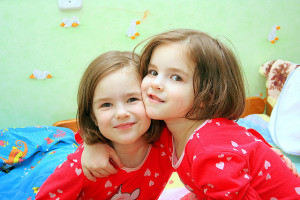Caretaking: Comforting or Controlling?

photo credit: _Nezemnaya_ via photopin cc
Many individuals who enter helping professions have assumed caretaking roles from a very young age. As children, they may have found themselves in a role reversal with no other recourse but to parent their parents. These children unknowingly give up their own needs to be nurtured, attended to, and soothed because they feel their job is to meet those needs for their parents. Because they lack healthy and secure parent attachments, many children in this predicament grow up without being able to identify their own needs and desires. As attachment theorists point out, individuals must be able to understand and articulate their parenting experiences with a modicum of self-reflection and empathy to avoid perpetuating this model of insecurity into the next generation.
Similarly, many twin pairs grow up taking care of each other. Few people question this dynamic because the stereotypic assumption is that this is how twins should behave. However, as twins get older, some begin to resent being “cared for” because it can feel controlling and intrusive. I have worked with many adult twins who struggle mightily with this issue. Unlike different-age siblings who often tell each other what to do and how to do it, a twin may experience a feeling of abandonment and a sense of betrayal when the other twin refuses to do what he or she is urged to do. If they cannot agree that the movie was terrific or that the concert was fantastic, they feel as if they are not connected. Highlighting differences makes them feel disconnected and alone. Twins who find themselves in this predicament need to work toward developing a more separate sense of self.
Do you have an experience—positive or negative—with caretaking that you’d like to share? I’d love to hear from you (see the comments below).

